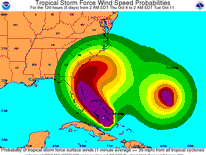The actress who played Emmerdale's Zoe Tate has announced she has terminal lung cancer.
Leah Bracknell starred in the ITV series, set in the Yorkshire Dales, from 1989 to 2005.
Her character was known for storylines which raised awareness about mental health and LGBT issues.
Ms Bracknell, who is now a yoga instructor, shared her diagnosis on an internet fundraising page set up to raise money for treatment in Germany.
On the fundraising page 52-year-old Leah, who is known to her family as Ali, said she had been teaching yoga workshops and starting rehearsals for a comedy play before she received the news.
"It turns out that the universe had other plans. Life was about to be unexpectedly turned on its head," she said.
"I began to feel breathless climbing stairs... I just put it down to a bit of stress.
'Bleak diagnosis'
"My abdomen suddenly ballooned - and within a matter of a few days I looked heavily pregnant. I could barely walk or breathe."
After an emergency procedure to remove excess fluid from around her heart, Ms Bracknell said she was told she had stage four lung cancer, which she described as "a fairly brutal and bleak diagnosis, but one I am determined to challenge".
Her partner Jez Hughes explained the funds will be used for "immunotherapy and integrative medicine, which are seeing previously 'incurable' cancers going into complete remission".
Ms Bracknell played vet Zoe Tate, sister to Chris Tate and daughter of Frank Tate, one of the main families in the soap.
During her years on the show Zoe Tate came out as lesbian and later suffered from schizophrenia.
She made a dramatic exit when she left the village, blowing up Home Farm where the family had lived.
She won the 'Best Exit' award at the British Soap Awards in May 2006 for her performance in the scene.
What is immunotherapy?
It is one of the most exciting avenues of cancer treatment which uses the body's own immune system to fight off cancer.
Our immune system is like a police force, protecting us from diseases.
Normally our immune system spots and destroys faulty cells - like cancer ones - but sometimes these can escape detection and develop into tumours.
Instead of targeting the cancer cells themselves, as many traditional cancer drugs do, immunotherapy re-awakens the immune system so it can 'remember' the cancer the cancer and stop it in its tracks.
A number of immunotherapy treatments are already showing considerable promise.



